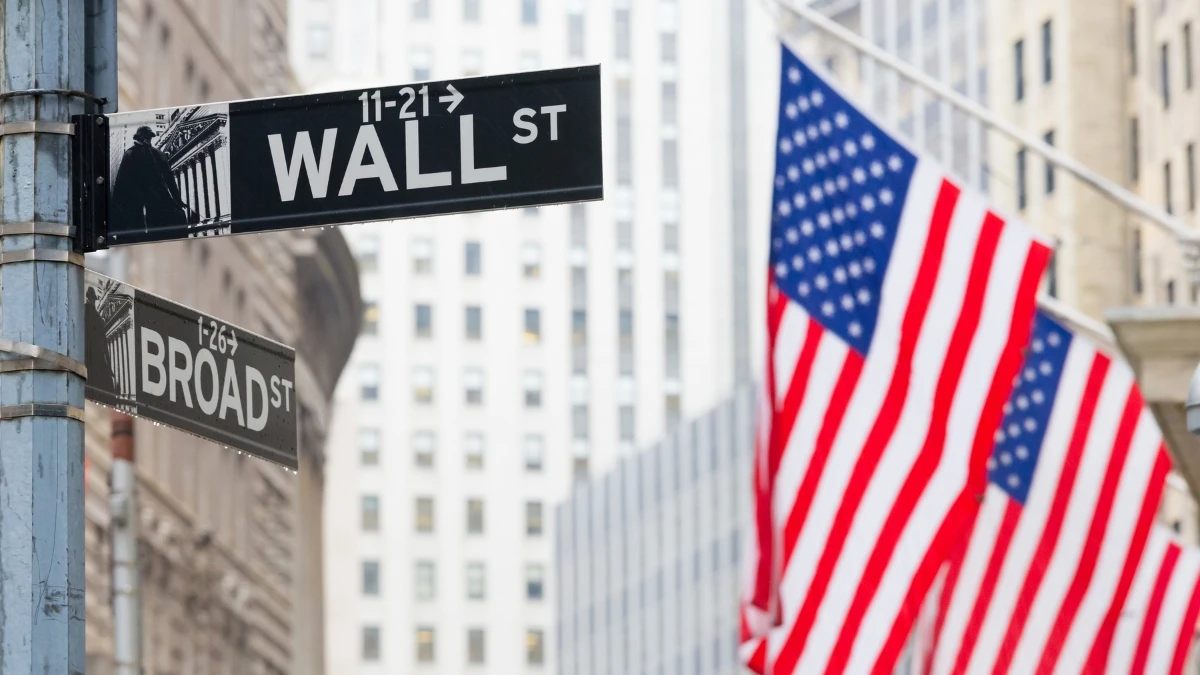New York, Nov 19 (AP) The US stock market is swinging through another jarring day on Tuesday, following a sell-off that swept Asia and Europe, as worries about too-high prices keep dogging Nvidia, bitcoin and other Wall Street stars.
After quickly dropping to a morning loss of 1.5 per cent, the S&P 500 clawed back most of it through a whirlwind day. It was down only 0.2 per cent in late trading, pulling a bit further from its all-time high set late last month. The Dow Jones Industrial Average was down 258 points, or 0.6 per cent, with an hour remaining in trading, and the Nasdaq composite was 0.5 per cent lower.
Nvidia was again one of the heaviest weights on the market and dropped 1.4 per cent. But it had been on track for a much worse day earlier, and it sank as much as 3.7 per cent during the morning. That briefly brought its loss for the month so far to more than 10 per cent, which is what Wall Street calls a “correction,” and its swings throughout the day dragged the rest of the market with it.
What Nvidia does matters disproportionately to savers' 401(k) accounts because its immense size means it's the most influential stock on Wall Street. It single-handedly steers the direction of the S&P 500 some days, after fervent demand for its artificial-intelligence chips helped it briefly top USD 5 trillion in total value.
The US stock market's recent struggles are a sharp turnaround from a nearly relentless rally since April, when Wall Street last sold off after President Donald Trump shocked the world with stiff tariffs. That rally, though, was so strong that critics said it may have carried prices too high, too fast and left the market at risk of a sharp drop. They pointed in particular to stocks swept up in the AI mania, which have been surging at spectacular speeds for years.
Nvidia's price more than doubled in four of the last five years, for example, while Palantir Technologies' stock more than doubled in the first six and a half months of this year.
Many big investors still seem to be expecting stock prices to rise further, according to the latest monthly survey of global fund managers by Bank of America Global Research. But when asked what the Number 1 risk for the market is, one with a lower probability of happening but a chance of very big damage, 45 per cent pointed to an AI bubble. That beat out potential trouble in the bond market, inflation and trade wars.
A record percentage of investors is also saying companies are “overinvesting,” according to the survey. The worry is that all the dollars pouring into AI chips and data centers worldwide may not produce the kind of revolution that AI proponents have been predicting, or at least not as profitable a one.
Other high-flying areas of the market with their own evangelists have also been struggling lately. Bitcoin's price briefly fell below USD 90,000 in the morning, down from nearly USD 125,000 last month. It later recovered some of its losses and climbed above USD 93,000.
Home Depot also helped drag the market lower after falling 4.4 per cent. It reported a weaker profit for the summer than analysts expected and cited a variety of reasons. Chief among them was a lack of storms, which would have driven customers to buy more home-improvement supplies. But CEO Ted Decker also pointed to “consumer uncertainty and continued pressure in housing” for preventing an expected increase in demand.
Reporting stronger profits is one of the ways a company can make its stock price look less expensive, because stock prices tend to track with earnings over the long term. That's raising the stakes for Wednesday's profit report from Nvidia, which could either help halt its stock's slide or worsen it.
Elsewhere on Wall Street, Cloudflare fell 1.1 per cent after an earlier issue at the internet infrastructure provider caused global outages for ChatGPT and other services.
In the bond market, Treasury yields held relatively steady. The yield on the 10-year Treasury dipped to 4.12 per cent from 4.13 per cent from late Monday.
The US government reported that the number of workers applying for unemployment benefits in the week through October 18 was roughly where it was a month earlier. It did not fill in data for the prior three weeks, though. The government is just beginning again to report data about the job market and other signals about the economy following its six-week shutdown.
The dearth of data has helped raised doubts about whether the Federal Reserve will cut its main interest rate at its next meeting in December, something that traders had earlier seen as very likely. What the Fed does is extremely important to the market because stock prices ran to records in part because of expectations for continued cuts to rates.
The Fed has cut rates twice already this year in hopes of shoring up a slowing job market. But lower interest rates can make inflation worse, and inflation has stubbornly remained above the Fed's 2 per cent target.
In stock markets abroad, indexes tumbled across Europe and Asia.
Japan's Nikkei 225 dropped 3.2 per cent after feeling extra pressure from a jump in Japanese government bond yields, reflecting rising risks as Prime Minister Sanae Takaichi prepares to boost government spending and push back the timetable for bringing down Japan's huge national debt.
South Korea's Kospi sank 3.3 per cent, and France's CAC 40 fell 1.9 per cent for two of the larger drops worldwide.
This report includes content sourced from Press Trust of India (PTI), edited for clarity and context.






